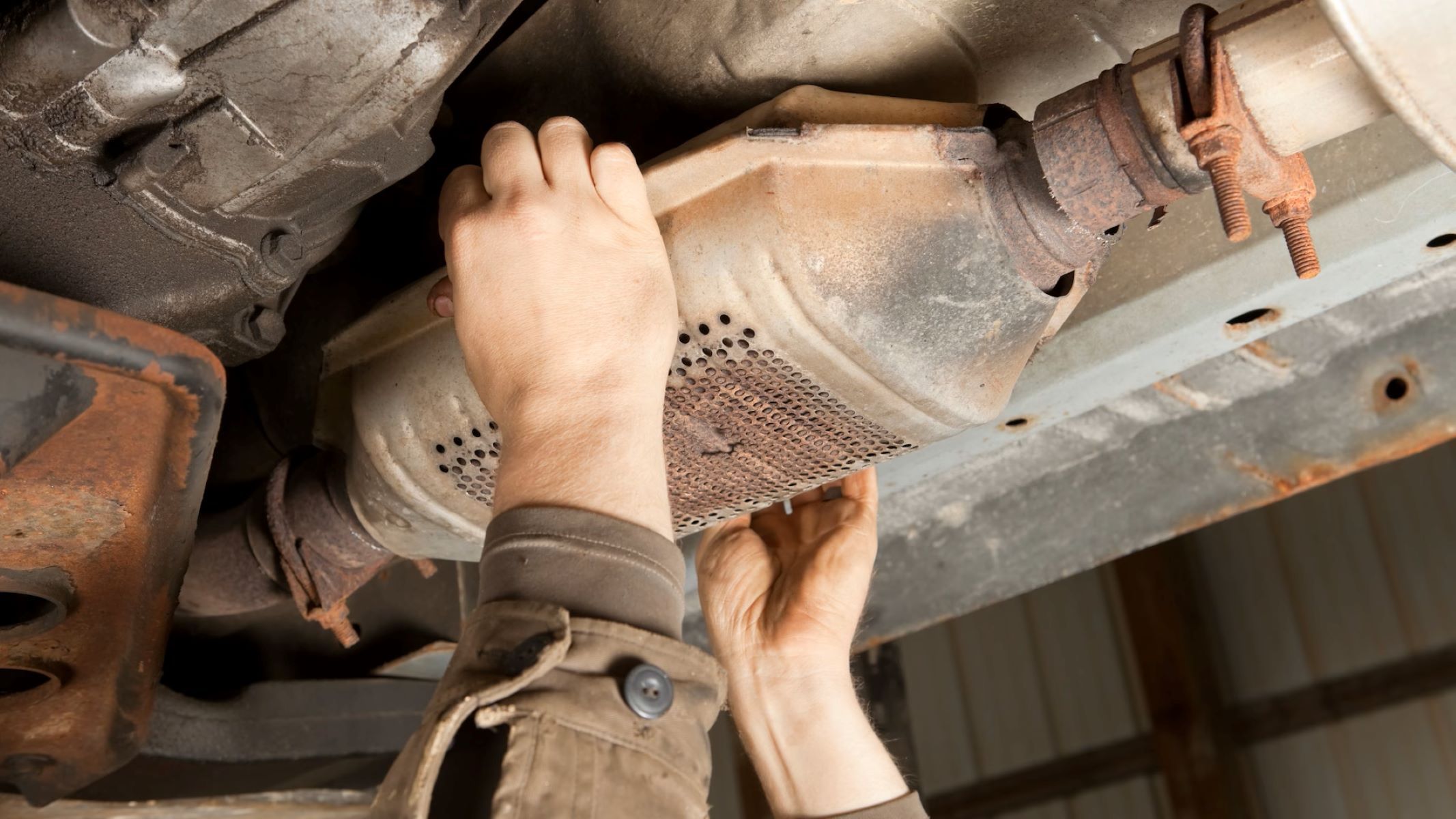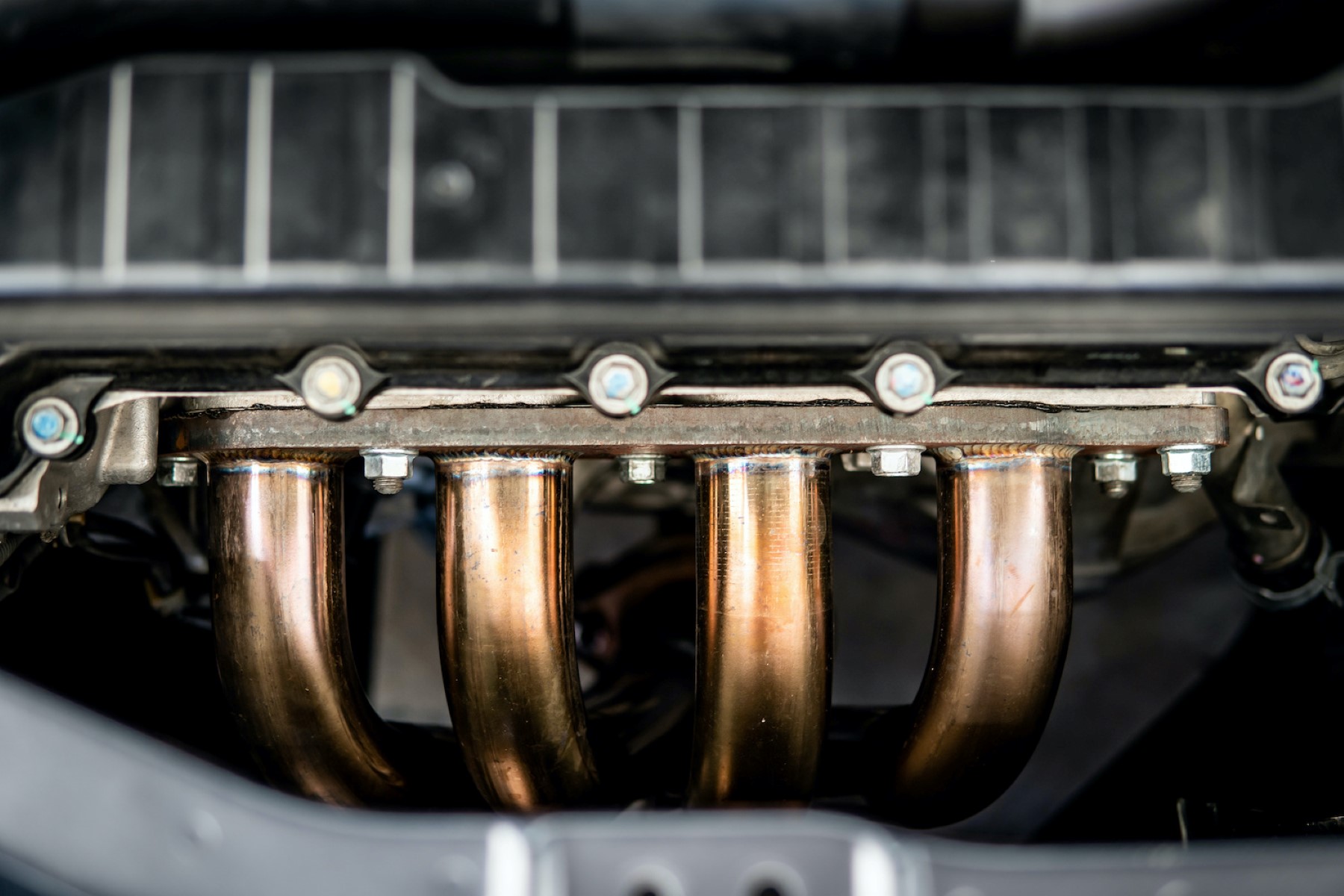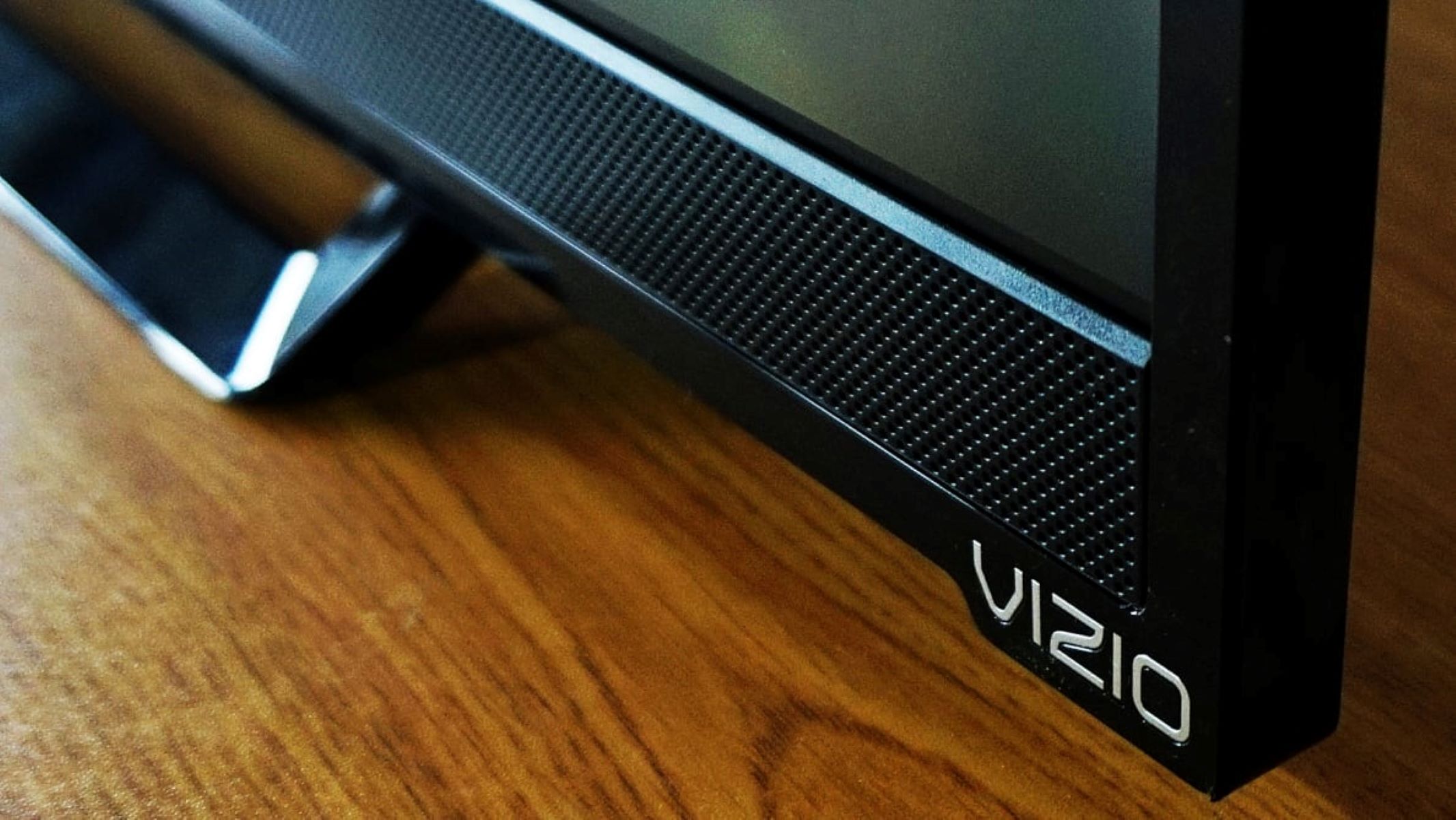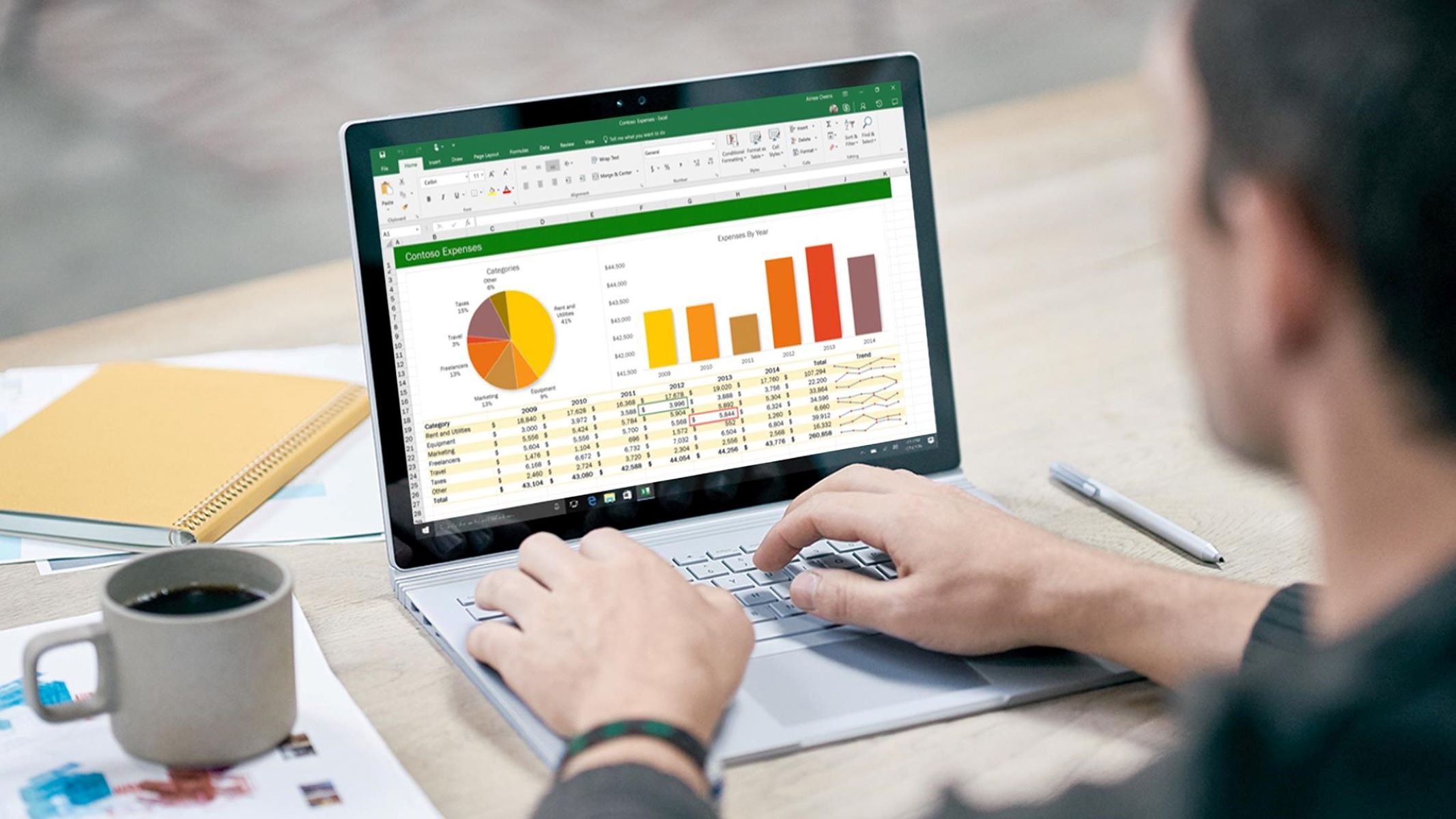Home>Business and Finance>Unleash The Hidden Value Of Your Catalytic Converter – Learn How To Sell Now!


Business and Finance
Unleash The Hidden Value Of Your Catalytic Converter – Learn How To Sell Now!
Published: February 15, 2024
Discover the secrets to unlocking the hidden value of your catalytic converter and learn how to sell it now. Maximize your profits in the business and finance industry today!
(Many of the links in this article redirect to a specific reviewed product. Your purchase of these products through affiliate links helps to generate commission for Regretless.com, at no extra cost. Learn more)
Table of Contents
Introduction
Your catalytic converter, a small but crucial component of your vehicle, holds untapped value that you might not be aware of. Whether you're a car enthusiast, a savvy businessperson, or simply someone looking to make some extra cash, understanding the worth of your catalytic converter and how to sell it can be a game-changer.
The catalytic converter, often referred to as a "cat" by those in the know, plays a vital role in reducing harmful emissions from your vehicle. It contains precious metals such as platinum, palladium, and rhodium, which act as catalysts to convert toxic gases into less harmful substances. While its environmental significance is undeniable, the value of the metals within the catalytic converter has made it a target for recycling and resale.
In this article, we'll delve into the intricacies of catalytic converters, uncovering their hidden value and guiding you through the process of selling them. Whether you're a vehicle owner looking to replace a worn-out converter or a business owner interested in capitalizing on this lucrative market, this comprehensive guide will equip you with the knowledge and tools you need to make informed decisions and maximize your returns.
So, buckle up and get ready to unlock the potential of your catalytic converter. It's time to learn how to identify its value, find the right buyer, and secure the best deal. Let's embark on this journey together and discover the hidden opportunities that await you in the world of catalytic converter sales.
Understanding the Catalytic Converter
The catalytic converter, an integral part of modern vehicles, serves a critical function in reducing harmful emissions. It is a key component of the exhaust system, responsible for converting toxic gases produced during the combustion process into less harmful substances before they are released into the atmosphere.
How It Works
Inside the catalytic converter, a honeycomb-like structure coated with precious metals, such as platinum, palladium, and rhodium, facilitates the chemical reactions that transform harmful pollutants. When the exhaust gases pass through this structure, the catalysts trigger oxidation and reduction reactions, converting carbon monoxide into carbon dioxide, nitrogen oxides into nitrogen and oxygen, and hydrocarbons into carbon dioxide and water vapor.
Environmental Impact
By neutralizing these harmful emissions, catalytic converters play a crucial role in reducing air pollution and minimizing the environmental impact of vehicle exhaust. This has significant implications for public health and environmental sustainability, making catalytic converters a vital component of modern transportation.
Evolution and Regulation
Catalytic converters have evolved over the years, becoming more efficient and durable. They are now a standard feature in most vehicles, mandated by stringent emission regulations in many countries. These regulations aim to limit the release of harmful pollutants, promoting cleaner air and a healthier environment.
Maintenance and Replacement
Despite their importance, catalytic converters are susceptible to wear and tear over time. Factors such as engine misfires, oil or coolant contamination, and physical damage can compromise their effectiveness. When a catalytic converter fails, it can negatively impact vehicle performance and emissions compliance, necessitating replacement.
Understanding the inner workings and environmental significance of catalytic converters is essential for appreciating their value and the potential for recycling and resale. Now that we've gained insight into the catalytic converter's role and impact, let's explore the hidden value it holds and how to leverage it to your advantage.
The Value of Your Catalytic Converter
The value of your catalytic converter extends far beyond its role in reducing vehicle emissions. Within this seemingly ordinary component lies a cache of precious metals that possess significant monetary worth. The catalysts embedded in catalytic converters, including platinum, palladium, and rhodium, are highly sought after for their industrial applications, particularly in the automotive and electronics industries. These metals, known for their exceptional catalytic properties, are essential for various processes, ranging from catalyzing chemical reactions to facilitating the production of electronic components.
The intrinsic value of these precious metals has led to a thriving market for catalytic converter recycling and resale. As a result, catalytic converters have become valuable commodities in the scrap metal industry, with their worth determined by the quantity and quality of the precious metals they contain. This has created a lucrative opportunity for vehicle owners, businesses, and recycling facilities to capitalize on the value of used catalytic converters.
The value of your catalytic converter is not solely dependent on its age or mileage. Even a seemingly worn-out converter can hold a substantial amount of precious metals, making it a valuable asset for recycling. However, it's important to note that the value of catalytic converters can fluctuate based on market demand, metal prices, and regulatory changes. Staying informed about these factors can empower you to make informed decisions when selling or recycling your catalytic converter.
Understanding the hidden value of your catalytic converter is the first step towards unlocking its potential. By recognizing the significance of the precious metals it contains and their impact on the recycling market, you can leverage this knowledge to make informed choices when it comes to selling or recycling your catalytic converter. In the subsequent sections, we will explore the intricacies of selling your catalytic converter, including finding the right buyer and securing the best price for this valuable automotive component.
How to Sell Your Catalytic Converter
Selling your catalytic converter can be a straightforward process when approached with the right knowledge and strategy. Whether you're a vehicle owner looking to replace a worn-out converter or a business seeking to capitalize on the value of used catalytic converters, understanding the steps involved in selling this automotive component is crucial. Here's a comprehensive guide to help you navigate the process and maximize the returns on your catalytic converter.
1. Removal and Inspection
Before selling your catalytic converter, it's essential to have it removed from the vehicle. This can be done by a qualified mechanic or automotive professional. Once removed, the converter should be thoroughly inspected to assess its condition and determine the presence of precious metals. While external wear and tear may be evident, the true value of the converter lies within its internal catalyst composition.
2. Research and Evaluation
Conduct research to determine the current market value of catalytic converters. Factors such as metal prices, converter type, and the quantity of precious metals present can influence its worth. Various online resources and recycling facilities can provide insights into the value of your specific converter based on its make, model, and metal composition.
3. Identifying Potential Buyers
Explore potential buyers for your catalytic converter, including scrap yards, recycling facilities, and specialized metal dealers. It's advisable to seek out reputable and licensed buyers who adhere to environmental and regulatory standards. Establishing a network of reliable buyers can facilitate a smoother selling process and ensure that you receive fair compensation for your converter.
4. Compliance and Documentation
Ensure that the sale of your catalytic converter complies with local regulations and environmental guidelines. Some jurisdictions require sellers to provide documentation proving the legal ownership and origin of the converter. Adhering to these regulations is essential for a legally sound and ethical transaction.
5. Negotiation and Transaction
Engage in negotiations with potential buyers to secure the best possible price for your catalytic converter. Transparency regarding the converter's condition, metal composition, and market value can strengthen your position during negotiations. Once an agreement is reached, ensure that the transaction is conducted in a secure and reputable manner, with proper documentation and payment verification.
By following these steps, you can navigate the process of selling your catalytic converter with confidence and maximize its value in the recycling and resale market. Understanding the intricacies of the selling process and leveraging the hidden value of your catalytic converter can lead to a rewarding and profitable transaction.
Finding the Right Buyer
When it comes to selling your catalytic converter, finding the right buyer is a pivotal step that can significantly impact the success of the transaction. Identifying a reputable and trustworthy buyer is essential for ensuring a fair and transparent selling process while maximizing the value of your converter. Here's a detailed exploration of the key considerations involved in finding the right buyer for your catalytic converter.
Research and Reputation
Conducting thorough research to identify potential buyers is crucial. Look for reputable scrap yards, recycling facilities, and specialized metal dealers with a track record of ethical and compliant business practices. Online reviews, testimonials, and industry accreditations can provide valuable insights into the reputation and reliability of prospective buyers. Additionally, seeking recommendations from trusted sources within the automotive and recycling communities can help in identifying reputable buyers known for fair dealings and adherence to environmental standards.
Environmental Compliance
Prioritize buyers who demonstrate a commitment to environmental compliance and sustainable practices. Reputable buyers adhere to local regulations governing the purchase and processing of catalytic converters, ensuring that the recycling and resale process aligns with environmental standards. By choosing a buyer with a strong environmental ethos, you can contribute to responsible recycling practices and support initiatives aimed at minimizing the ecological impact of metal extraction and processing.
Transparent Pricing and Fair Evaluation
Look for buyers who offer transparent pricing and fair evaluation processes. A reputable buyer will provide clear and detailed information about how they assess the value of catalytic converters, taking into account factors such as metal composition, converter type, and market fluctuations. Transparency in pricing and evaluation instills confidence in the selling process and allows you to make informed decisions regarding the sale of your converter.
Licensing and Compliance
Ensure that the buyer holds the necessary licenses and certifications to engage in the purchase and processing of catalytic converters. Licensed buyers are more likely to adhere to industry regulations and ethical standards, providing assurance that the transaction is conducted within legal parameters. Verifying the buyer's credentials and compliance with regulatory requirements is essential for a secure and legitimate selling experience.
Networking and Referrals
Engage with industry professionals, automotive enthusiasts, and recycling experts to expand your network of potential buyers. Networking within relevant communities can provide access to reputable buyers with established credibility and a history of fair dealings. Referrals from individuals with experience in catalytic converter sales and recycling can lead you to trustworthy buyers who prioritize integrity and professionalism in their transactions.
By considering these factors and conducting thorough due diligence, you can identify the right buyer for your catalytic converter, ensuring a smooth and rewarding selling experience while maximizing the value of this valuable automotive component.
Getting the Best Price
Securing the best price for your catalytic converter involves a strategic approach that encompasses thorough research, effective negotiation, and engagement with reputable buyers. By leveraging the hidden value of the precious metals within the converter and understanding the dynamics of the recycling market, you can maximize the returns on your sale. Here's a detailed exploration of the key strategies for getting the best price for your catalytic converter.
Market Awareness and Metal Prices
Stay informed about the current market prices of precious metals, particularly platinum, palladium, and rhodium, which are the primary catalysts found in catalytic converters. Monitoring metal price trends and understanding their impact on the overall value of converters is essential for gauging the potential returns on your sale. Online resources, industry publications, and market analysis reports can provide valuable insights into metal price fluctuations, enabling you to time your sale for optimal returns.
Read more: How To Sell Items On Roblox
Quantity and Quality Assessment
Accurately assess the quantity and quality of precious metals present in your catalytic converter. Factors such as the converter's make, model, and manufacturing year can influence the concentration of valuable metals it contains. Engage with reputable recycling facilities or metal assay laboratories to conduct a precise analysis of the metal composition within your converter. This comprehensive assessment will empower you to negotiate from a position of knowledge, ensuring that you receive fair compensation based on the actual metal content.
Negotiation and Transparency
Engage in transparent and informed negotiations with potential buyers. Share the results of your metal composition analysis and market research to substantiate the value of your catalytic converter. Transparency regarding the converter's condition, metal content, and market value can strengthen your position during negotiations, leading to a mutually beneficial agreement. By fostering open communication and a willingness to collaborate, you can create a conducive environment for securing the best possible price for your converter.
Multiple Offers and Comparisons
Seek multiple offers from different buyers to gauge the range of prices offered for your catalytic converter. By comparing and contrasting the offers, you can identify the most competitive and favorable deal. Be cautious of offers that seem unusually low or excessively high, as they may not accurately reflect the true value of your converter. Evaluating multiple offers provides valuable leverage in negotiations and allows you to make an informed decision that aligns with your expectations.
Professional Representation
Consider engaging the services of experienced professionals or consultants specializing in catalytic converter sales and metal recycling. These experts can provide valuable guidance and representation throughout the selling process, leveraging their industry knowledge and network to secure the best price for your converter. Their expertise in navigating the complexities of the metal recycling market can enhance your selling experience and optimize the financial outcome of the transaction.
By implementing these strategies and leveraging your understanding of the catalytic converter's value, you can position yourself to secure the best possible price for your converter. Through diligent research, transparent negotiations, and informed decision-making, you can capitalize on the hidden value of your catalytic converter and maximize the returns on your sale.
Read more: Book Your Table At Applebee’s Now!
Conclusion
In conclusion, the catalytic converter, often overlooked as a mundane automotive component, holds remarkable potential for those willing to explore its hidden value. Understanding the intricate interplay of precious metals, environmental impact, and market dynamics is essential for unlocking the financial opportunities presented by catalytic converter sales. By delving into the world of catalytic converters, individuals and businesses can capitalize on the inherent worth of these seemingly ordinary devices.
The journey of selling a catalytic converter begins with a deep understanding of its composition and the market forces that shape its value. Recognizing the presence of precious metals, such as platinum, palladium, and rhodium, within the converter opens the door to a lucrative recycling and resale market. This awareness empowers sellers to make informed decisions and negotiate from a position of knowledge, ensuring that they receive fair compensation for their converters.
Moreover, finding the right buyer is paramount in the process of selling a catalytic converter. Seeking out reputable and environmentally conscious buyers who adhere to ethical standards and transparent pricing practices is crucial for a seamless and trustworthy transaction. By aligning with buyers who prioritize compliance and sustainability, sellers contribute to responsible recycling practices and uphold the integrity of the catalytic converter market.
Securing the best price for a catalytic converter involves a strategic blend of market awareness, metal assessment, negotiation prowess, and professional guidance. By leveraging these strategies, sellers can optimize their returns and capitalize on the full potential of their converters. Transparency, diligence, and a willingness to explore multiple offers play a pivotal role in ensuring that sellers receive the best possible price for their catalytic converters.
In essence, the journey of selling a catalytic converter is not merely a transaction but an opportunity to tap into the hidden value of a ubiquitous automotive component. Whether driven by financial incentives, environmental consciousness, or a desire to maximize the utility of used converters, individuals and businesses can embark on this journey with confidence and purpose. By embracing the knowledge and strategies outlined in this guide, sellers can navigate the catalytic converter market with clarity and foresight, unlocking its hidden value and reaping the rewards of informed decision-making.









